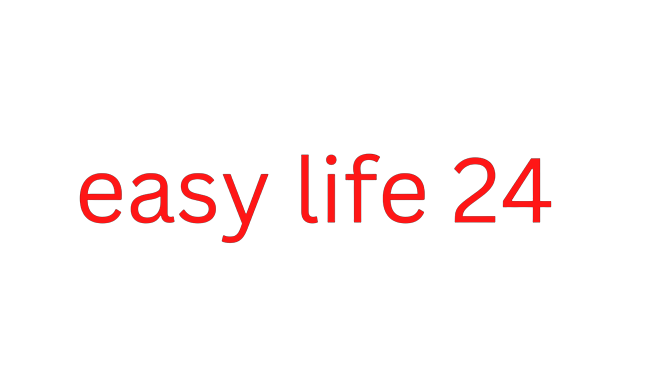As the African qualifiers for the 2026 FIFA World Cup kicked off on November 15, the anticipation and excitement gripped the continent. However, one notable absence stood out – East African minnows Eritrea. Their decision to withdraw from the qualifiers ahead of the first tie against Morocco has not only dashed the hopes of football enthusiasts in the country but also marked the end of their World Cup dreams without even stepping onto the field.
A Missed Opportunity: Eritrea's Absence from the Global Showpiece
While national teams across Africa engage in fierce competition to secure a coveted spot in the 2026 FIFA World Cup, Eritrea finds itself on the sidelines, missing out on ten crucial matches over the next two years. This withdrawal adds to a disheartening pattern, with the Red Sea Camels having missed out on participating in ten major international football competitions, including two previous World Cups, since 2010.
The Perennial Absence: Eritrean Football's Unfortunate Trend
Eritrean football fans, unfortunately, have become accustomed to this recurring theme. The reasons behind the consistent withdrawals are not officially communicated, but insiders in Eritrean football circles point to a concerning trend – the high-profile defections of footballers leading to the authoritarian regime withdrawing the teams from competitions.
Daniel Solomon's Insight: A Former Scout Speaks
The Risk of Defections: A Decisive Factor
Daniel Solomon, a former Eritrean national team scout residing abroad and the founder of the Eritrean Football website, sheds light on the rationale behind Eritrea's withdrawal. "It's because of [the likelihood] of defections after away matches," explains Daniel. Unlike previous World Cup qualifying campaigns, the current format involves a round-robin 10-match competition. With Eritrea lacking approved stadiums, each match would have to be played abroad, posing logistical challenges for the Football Association (FA).
Challenges Amplified: No Preliminary Round, Only a Round-Robin
The absence of a preliminary round, typically a two-match setup, further complicates matters for Eritrea. The country's lack of approved stadiums means that every match in the 10-match competition must be played on foreign soil, creating additional hurdles for the already challenged FA.
Eritrea's Complex Reality: Beyond Football
Authoritarian Rule and Its Impact
Since gaining independence in 1991, Eritrea has been under the firm rule of President Isaias Afwerki. The lack of press freedom, oppression of religious minorities, and mandatory military conscription add layers of complexity to the nation's reality. The latter, in particular, involves drafting citizens into indefinite servitude, serving as a driving force for Eritrean refugees fleeing the country.
Saba Tesfayohannes' Perspective: A Glimpse into the Harsh Realities
Saba Tesfayohannes, co-founder and board chair of ERISAT television outlet, highlights the challenges faced by Eritrean youth. The mandatory military conscription takes individuals to Sawa military camp, where they undergo schooling alongside military training. The looming prospect of being sent to conflicts, exemplified by Ethiopia's Tigray war, adds an unsettling dimension to the lives of Eritrean citizens.
Conclusion: A Multifaceted Challenge
As Eritrea grapples with the complexities that extend beyond the football field, the withdrawal from the 2026 FIFA World Cup qualifiers becomes emblematic of broader societal issues. The intertwined nature of sports and socio-political realities underscores the multifaceted challenges faced by the nation, leaving football fans to ponder the future of the sport in Eritrea.
The Global Arena: Missing in Action
Exiled Talent
Eritrean footballers abroad face a different set of challenges. The article sheds light on the stories of exiled talent, exploring the hurdles they encounter in pursuing their passion in foreign lands. From adapting to new football cultures to navigating personal and professional challenges, these players embody resilience in the face of displacement.
International Recognition
Despite the odds, some Eritrean footballers have managed to make a mark on the international stage. The article celebrates their achievements, highlighting the recognition they bring to Eritrea and the potential inspiration they provide to aspiring players back home.
The Path Forward: A Glimmer of Hope
Grassroots Initiatives
Amidst the challenges, grassroots initiatives emerge as beacons of hope. This section explores the efforts of local communities and football enthusiasts to revitalize the sport at the grassroots level, fostering a renewed sense of optimism for the future.
International Collaboration
The article also delves into the role of international collaborations and partnerships in uplifting Eritrean football. From mentorship programs to resource-sharing, global initiatives contribute to the resilience of the sport in the face of adversity.
In a poignant exploration of the challenges faced by Eritrean football, this article delves into the story of a sport that, despite its passion and potential, finds itself grappling with obstacles both domestically and internationally. From the deflation of dreams to the impact on the global stage, the narrative of Eritrean football unfolds as a tale of resilience in the face of adversity.
The Home Front: Deflated Aspirations
Internal Struggles
Eritrea, with its rich history and cultural diversity, has seen football struggle to reach its full potential. Internal challenges, ranging from resource limitations to administrative issues, have contributed to the deflation of aspirations within the country. This section explores the intricacies of the domestic football scene and the hurdles hindering its growth.
Impact on Youth
The deflation of Eritrean football dreams resonates strongly with the youth. The article investigates how the struggles at the grassroots level affect the aspirations of young football enthusiasts, examining the potential long-term consequences for the sport in the nation.


